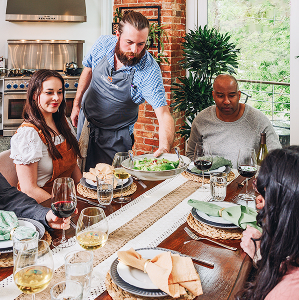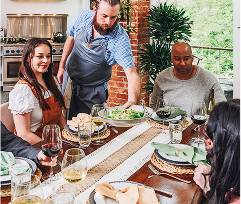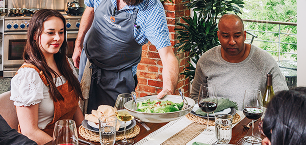Unlock Your Inner Chef: Tips for Plating Food Like a Pro
Plating food like a pro is an essential skill in the culinary world. Professional presentation makes all the difference, whether restoring order to a chaotic kitchen, turning a simple meal into something showstopping, or ensuring that each diner receives the dish with exquisite aesthetics. Studies have even shown that people enjoy food more when it looks attractive, so perfect plating is excellent for diners and chefs. Plus, with so many food blogs and social media accounts devoted to picture-perfect plate presentations, your dinner guests can be even more impressed by how stunningly put together their meals are. Who said you couldn’t eat with your eyes?
Eating is one of life’s greatest pleasures, but the presentation of your meal can make all the difference. Have you ever tried getting creative with plating a dish like a pro? When done right, it can completely transform the look and feel of your meal, making it truly unique and memorable. Plating food like a pro is a great way to show off your culinary skills and add pizzazz to any meal. This blog will discuss why thoughtful plating can elevate any plate and how you can plate food like a pro in simple steps. So let’s explore how to engage all five senses when presenting our meals.
Presentation Basics for Plating Food
Presenting a plate of food is an art that can easily be overlooked. It affects not only how your dish looks but also how it tastes; the whole experience can either make or break a dining experience. To ensure success when plating your meal, take into account the basics, such as ensuring an appropriately proportioned plate; trying to include color and texture variety; dressing a plate (with herbs and sauces); and crowning a plate with complimentary accompaniments, such as edible flowers. Once you have achieved these steps, you will realize that your food presentation has become unsurpassed. So next time you sit down for a meal, think twice about the arrangement of condiments and toppings that enhance the vibrancy of the dish – it will guarantee to impress!
Creating a Colorful Palette
Creating a colorful palette for your food can make it look appetizing. Here, variety is the key. Look to incorporate different types of ingredients and contrast between unique colors as you plate your dish. Also, try minimizing the number of individual elements within a dish when plating, as having an abundance of one ingredient creates both visual chaos and potential flavor competition vulnerabilities. Instead, increase the significance of individual ingredients by consciously setting them aside on the plate in groups of one or two items at a time – avoid clumping together all the items. Finally, enhancing with garnishes like herbs or edible flowers can add pops of color and texture to break up your dish’s overall presentation.
Utilizing Different Textures and Shapes
Plating food like a private chef can sometimes seem daunting, but utilizing different textures and shapes can be the perfect way to make the task much more straightforward. Various textural elements, such as crunchy garnishes and smooth purees, provide immediate visual variation and help balance out each plate component. Additionally, varying the shapes of food items helps add further interest to a dish. For example, include elements that are julienned or cubed, along with food in its natural form. With these design touches, your guests will experience dynamic flavor profiles and stunning visuals too.
Proportion, Balance, and Symmetry
From a chef’s perspective, Proportion, Balance, and Symmetry play a critical role when plating food. Proportion ensures the portions are correctly sized according to the meal structure, and all ingredients have their fair representation on the plate. The balance should be observed in the plate’s visual aspect regarding each food item’s color, texture, and temperature, bringing contrast and equilibrium. Symmetry helps create an aesthetically pleasing effect that complements the balance discussed earlier. Optimal proportions, balanced aspects, and a symmetrical presentation of foods can make all the difference between a dull plate and an intriguing one.
Working with Sauces and Other Toppings
Working with sauces and other toppings provides the finishing touch to your culinary creations. These elements can make a significant difference in plating from vibrant herbs to smoky sauce. But how can you use sauces and toppings like a professional chef? It is all about understanding how they work together. Using contrasting colors and flavors in sauces, drizzles, and dressings, such as combining sweet with sour or warm with cool, can create an aesthetically pleasing plate. Sauces are also excellent for adding texture to any dish by providing structure with line decorations. Furthermore, chefs often complete their creations by adding extra garnishes like edible flowers and delicate herbs, which add flavor and color to the plate. Ultimately, you can bring your dishes to life by learning to integrate layers of flavor through sauces, dressings, and toppings.
Making the Most of Garnishes
Garnishes are a simple way to instantly take food presentation to the next level. From intricate and elegant plating techniques to making your dish pop with unique flavors, having a well-curated selection of garnishes can make all the difference. Spices like chives, cinnamon, rosemary, and basil can add flavor and visual interest, while herbs like cilantro, mint, oregano, and tarragon add aroma and color. Additionally, edible flowers are a great way to impress guests with their unexpected beauty and vibrant colors. By understanding what garnishes work best with which dishes, making food look delicious is a breeze. Once you’ve mastered how to present your dishes beautifully with garnishes, plating food like a professional chef will be second nature.
Final Touches to Make Your Dish Pop
Every chef or home cook knows that the perfect dish requires significant effort in preparation and presentation. Whether it’s putting together an entrée for dinner guests or a delectable dessert to surprise family members, adding some special final touches can make your dish pop. A drizzle of citrus juice can brighten marinades, while herbs and spices like rosemary, thyme, and paprika give food an extra flavor boost. Fresh garlic, shallots, and capers provide a nutritious kick. And for those who want their dishes to look as delicious as they taste, sprinkle freshly chopped parsley, dill, or mint for a colorful addition of freshness. With these simple final touches, you can be sure that your dish will stand out from the rest.
Choosing the Right Plate
Choosing the right plate is crucial for presenting your meal in a visually pleasing manner and can also help to bring out the full flavor of your dish. The plate’s color, shape, and size can all come together to form an eye-catching presentation that can pull together all of the delicious flavors and aromas. For example, contrast is essential: contrasting colors and textures will bring out the savory tones in a meat dish or the sweetness of a fruit salad. Different shapes are perfect for emphasizing the various elements within the food, too, with circles ideal for focusing on specific components. Finally, plates with intricate patterns can further play around with color and texture — providing a multidimensional presentation and allowing for some splash of creativity for food presentation.
Placing Ingredients Strategically
As a final step to creating a dish that truly stands out, strategically placing ingredients can go a long way in making your meal pop. This placement could mean positioning certain elements further away from each other, such as sliced tomatoes and crumbled feta cheese, or arranging items in the center of the plate to make them appear higher on the plate than in their surroundings. Adding garnishes with color contrasts to tie the dish together can help balance out flavor combinations and draw attention to components you want potential diners’ eyes to drift towards. Finishing touches like these can take a meal from good to great.
Enhancing with Herbs and Spices
Enhancing with herbs and spices can add a real kick to any dish. Adding just one or two ingredients can transform regular recipes into masterpieces. Chili flakes give a hint of spiciness that packs a punch, and paprika provides a beautiful smokiness reminiscent of an outdoor grill. For a medley of flavor, herbs like thyme and basil bring out the best in vegetables, while coriander boosts the flavor of fish. A drizzle of balsamic reduction can take things up another notch by creating layers of sweetness and acidic flavors. Enhancing with herbs and spices isn’t complicated or time-consuming, but it can make your dishes pop with a mouth-watering appeal.
Conclusion
Plating food like a professional chef can genuinely transform what would have been an ordinary dining experience into something special. Not only does it help to stimulate the appetite by making a meal look irresistible and inviting, but it is also a great way to enhance the flavors of the ingredients so that your guests will be raving about your dinner for days. Plating like a chef can take less than 15 minutes, making it an easily attainable goal for any home cook. So whip up something delicious for dinner, plate it in style, and bask in the glory of your creative delectables.



 Settings
Settings
 Gift Card
Gift Card Blog
Blog Locate Us
Locate Us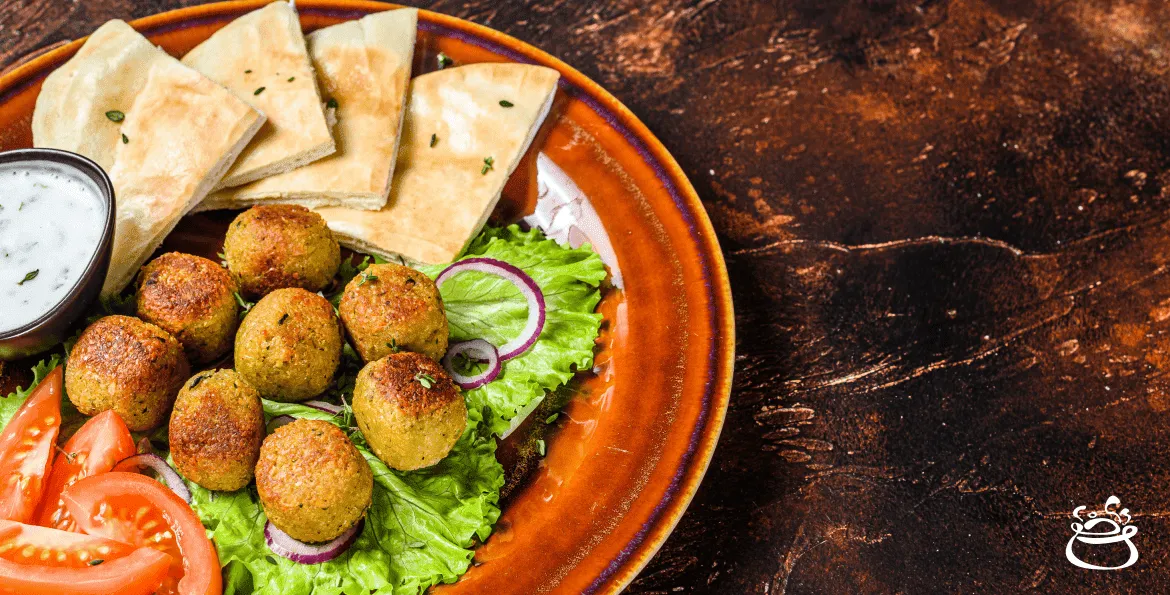

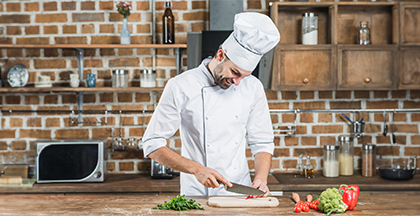
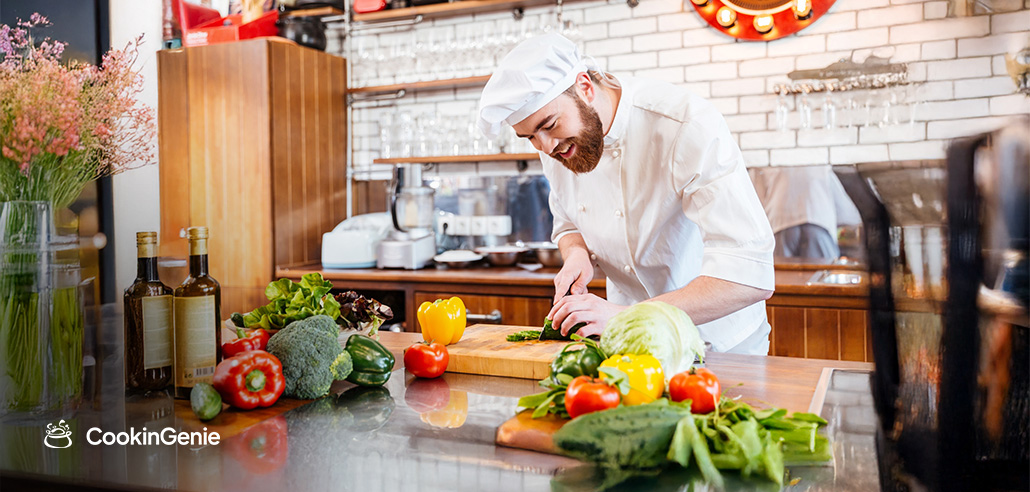
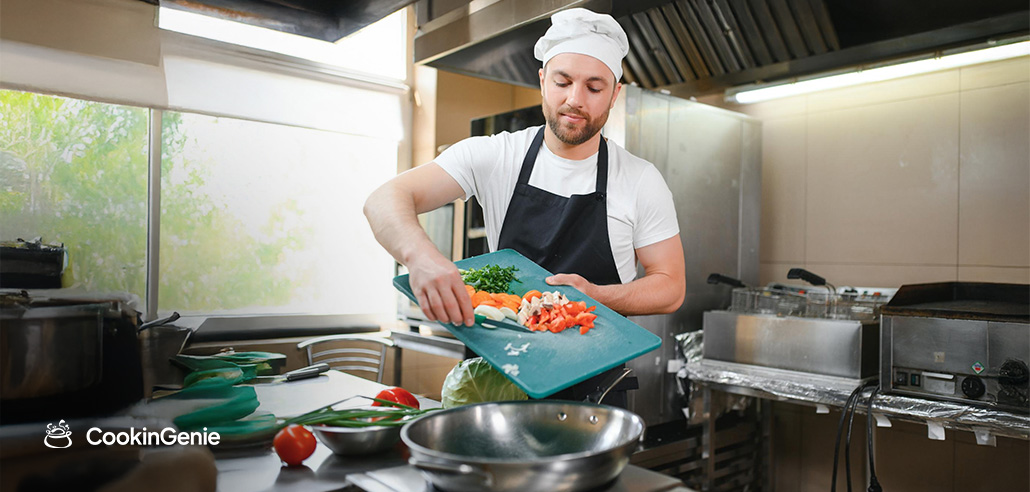
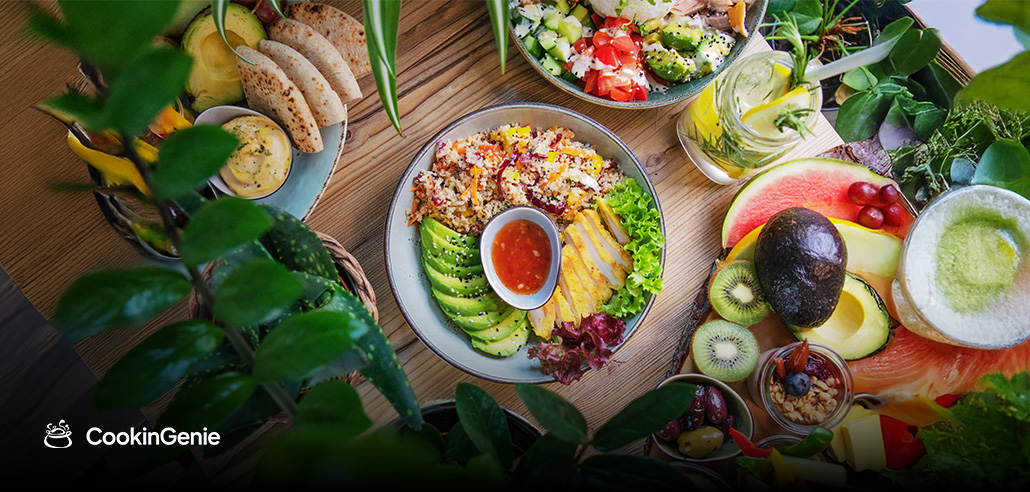





 Home
Home
 Chefs
Chefs
 Chats
Chats
 My Order
My Order

